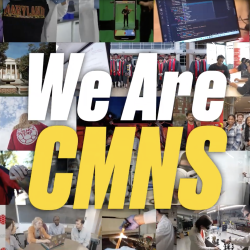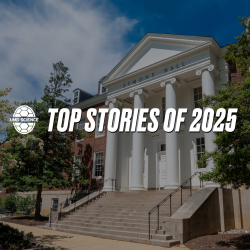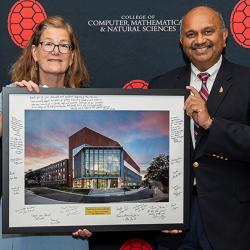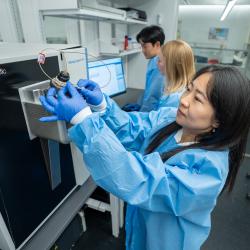Synthetic Organic Chemist Xiaodong Michael Shi Joins UMD Faculty
Alum returns as a professor in the Department of Chemistry and Biochemistry this August
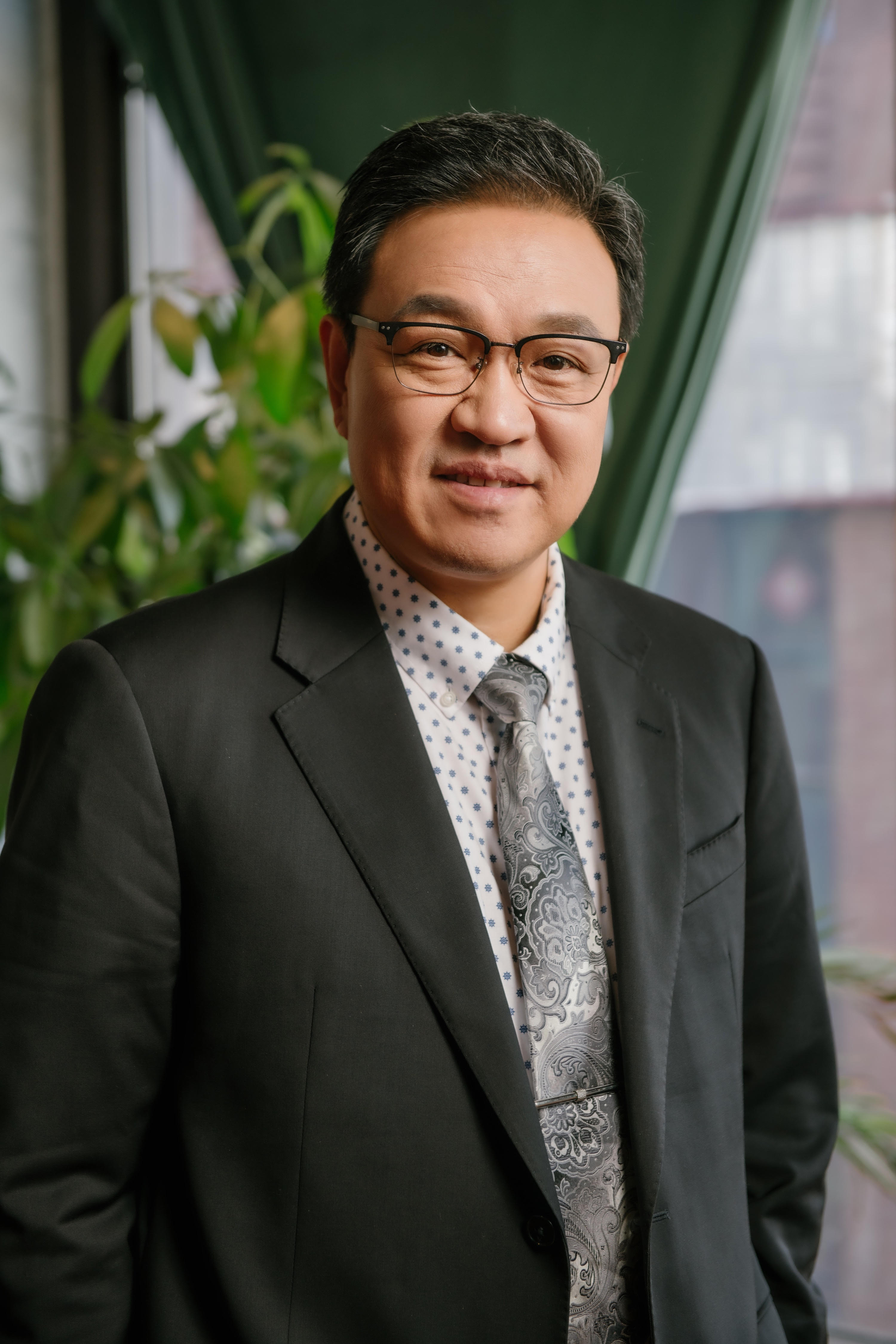
Twenty-one years after earning a Ph.D. in chemistry from the University of Maryland, Xiaodong Michael Shi’s career has come full circle. On August 15, 2023, the synthetic organic chemist will become the newest professor in UMD’s Department of Chemistry and Biochemistry—and he couldn’t be happier.
“Maryland holds a very special place in my heart. I came to the United States from China in 1997, and of my 26 years here, I had my best four at the University of Maryland,” Shi said. “I met so many friends here, and the professors really opened my eyes and changed how I think about chemistry. It’s truly exciting to have the opportunity to come back and serve my alma mater.”
In his research, Shi creates new ways to synthetically produce chiral compounds, which are important in drug design. He also develops organic synthetic methodologies for the synthesis of biomaterials.
“Mike brings an exquisite control of organic synthesis to biomaterial discovery, and his creation of new materials architectures with chemoselective properties is at the forefront of science,” said Janice Reutt-Robey, chair of the Department of Chemistry and Biochemistry. “His research program offers exciting new training and collaboration opportunities for UMD students and faculty.”
Shi was a first-generation college graduate, earning bachelor’s and master’s degrees in chemistry from Nankai University in Tianjin, China. After graduating with his Ph.D. from UMD, he moved to the West Coast and explored a mix of bioorganic and synthetic organic chemistry as a postdoc at UC Berkeley.
Though he initially set out to work in private industry, he discovered a love of academia and never looked back. He taught chemistry at West Virginia University for a decade and received a Faculty Early Career Development (CAREER) Award from the National Science Foundation (NSF) for his novel studies of 1,2,3-Triazoles—synthetic molecules that are challenging to control but could have broad applications in medicine and materials science.
“Whenever we want to make a drug, we first need to have a molecule and a way to prepare that molecule, called synthesis,” Shi said. “My research provides a new tool for making a molecule in a more efficient way or making new molecules that can potentially become a drug candidate.”
Thanks to the NSF funding, Shi developed an eight-week study abroad experience for students to conduct research at a top university in China. Shi chaperoned the students—many of whom had never traveled—and described it as a highlight of his teaching career.
Shi later left West Virginia University to work at the University of South Florida for eight years. During this time, he helped develop a new method of gold catalysis to accelerate chemical reactions. His method for controlling gold’s oxidation state helped chemists overcome the challenge of gold catalysts being rendered unstable at the high temperatures needed to achieve these tricky reactions.
At UMD, Shi will work alongside some of the professors he learned from during his Ph.D. program, including Daniel Falvey (who taught Shi about the electron pushing mechanism), Lyle Isaacs (who taught Shi physical organic chemistry) and Jeffery Davis (who served as Shi’s advisor). During his Ph.D. program, Shi earned an outstanding research assistant award for his studies of the aggregation properties and potential biomedical applications of markers for self-assembling nucleobases of RNA and DNA. He said he owes much of his success to this research, which catapulted his career as a chemist.
Shi looks forward to working with the chemistry and biochemistry professors he has known for years and forming new relationships with researchers in other departments.
“I left Maryland 21 years ago, and in that time UMD has developed quite a bit,” Shi said. “Now there are many collaborating opportunities for me. I have my own expertise in synthetic organic chemistry, and I think I can contribute something complementary to the research UMD excels at now.”
Emily Nunez
Science Writer/Media Coordinator
ecnunez@umd.edu


